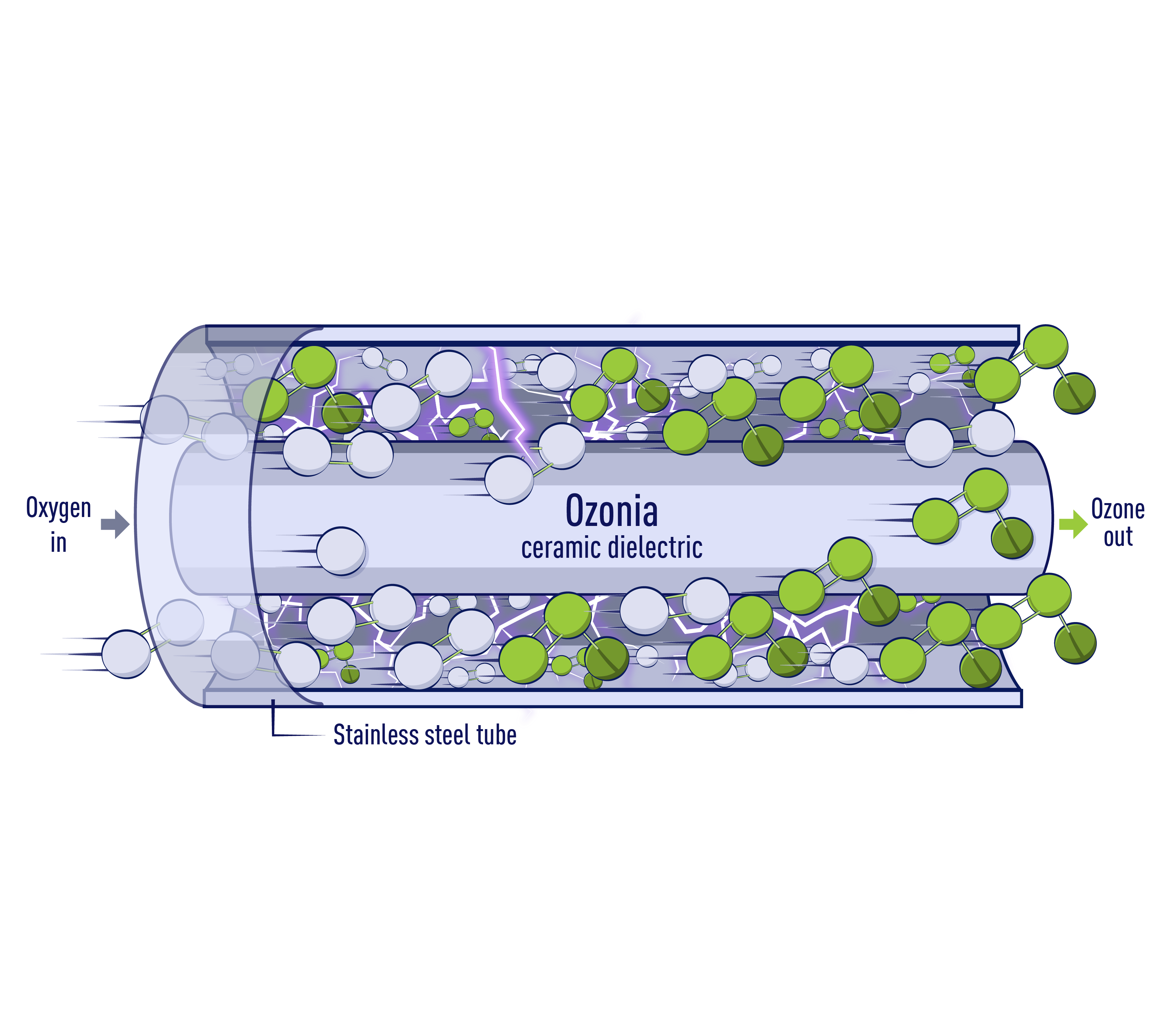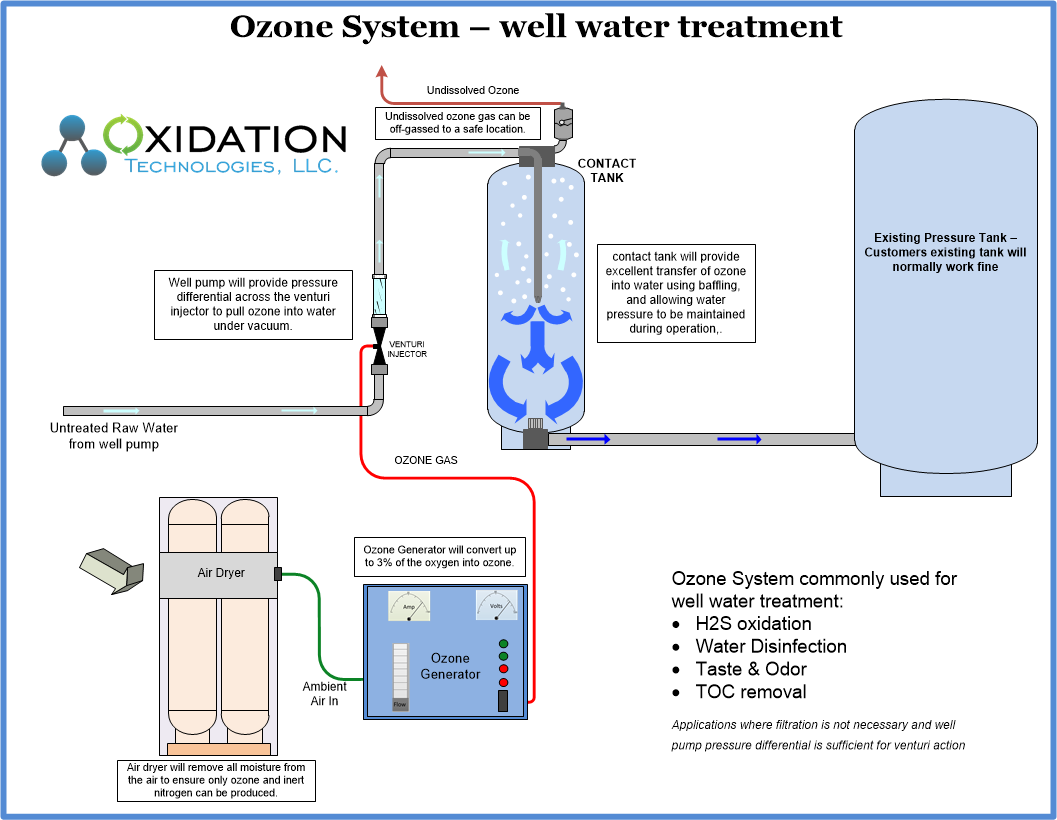Clean water, it's something we all want, something we truly need for our homes and our daily lives, and for keeping things fresh. So, there are many ways people go about making sure the water they use is safe and good. This process, called ozonation, is a really interesting way to get water that is very clean, and it's been around for quite a while, you know.
When ozone, which is a certain kind of gas, mixes into water, that water then becomes what we call ozonated water. This special water is thought to bring some good things, from helping to keep our food from spoiling too quickly to even, some believe, playing a part in fighting serious health problems. It's a method that really focuses on getting rid of things we don't want in our water, pretty much.
The idea of using ozone to treat water actually started a long time ago, right at the beginning of the 1900s, in some respects. Yet, for many years, another way, using chlorine, was much more common for cleaning water. But now, more people are looking at ozonation as a very good way to make water safe and clean for many different uses, both at home and in bigger places like factories, too it's almost.
Table of Contents
- What Exactly is Ozonation of Water?
- How Does Ozonation of Water Work Its Magic?
- Why Consider Ozonation of Water for Your Needs?
- Ozonation of Water - A Look at Its Journey Through Time
- Is Ozonation of Water Better Than Other Methods?
- Where Can We See Ozonation of Water in Action?
- How Does Temperature and pH Affect Ozonation of Water?
- A Quick Recap of Ozonation of Water
What Exactly is Ozonation of Water?
Ozonation of water, you know, is basically a way to clean water that is very kind to the environment. It doesn't involve putting any extra chemicals into the water, and once the cleaning is done, there are no traces of anything left behind. So, this makes it a really good option for people who want a clean water source without any added substances, pretty much.
To put it simply, ozonation means adding ozone gas into a liquid, usually water, to use its ability to change things through a chemical reaction and, most importantly, to get rid of germs and other unwanted bits. Ozone itself is a form of pure oxygen, just arranged a little differently, which makes it very active. This is why it works so well for making water safe to use, that is that.
This method is becoming more and more popular because it does a very good job at getting rid of a lot of different kinds of unwanted things in water. But you might be wondering, how does this process actually work? It's a pretty interesting natural process that we've learned to use for our benefit, actually.
How Does Ozonation of Water Work Its Magic?
The whole process of ozonation of water starts with making ozone itself. Ozone isn't something we just find sitting around in big amounts; it needs to be made. This usually happens inside a special machine called an ozone generator. In this machine, a lot of electrical power is put into oxygen, which then changes it into ozone gas. So, it's a bit like how lightning in nature can create ozone, just in a controlled setting, very.
Once the ozone is made, it gets put right into the water. The moment ozone touches water, it starts working very quickly. It begins to react with and get rid of things that shouldn't be there, like dirt, tiny living things, and other bits that make water not as clean as we'd like. This fast action is what makes ozonation a very strong way to clean water, in fact.
When ozone meets water, it actually breaks apart into regular oxygen and two other very active bits called hydroxyl radicals. These hydroxyl radicals are extremely powerful; they are what do a lot of the heavy lifting in cleaning the water. They are really good at breaking down harmful things, which is why the water becomes so pure. It's kind of like having tiny, super-effective cleaners working for you, you know.
For example, ozone can change things like iron, manganese, and sulfur that are in the water. It turns them into solids that don't dissolve, or into pure sulfur. These new solid bits can then be taken out of the water easily. This means the water not only gets cleaner but also often tastes and smells better, too it's almost. This is a big plus for ozonation of water, obviously.
Why Consider Ozonation of Water for Your Needs?
Ozonation is a very strong way to clean water and make sure it doesn't have harmful things in it. This method uses ozone, which is a gas that doesn't stay stable for very long, made by putting a lot of electrical power into oxygen. This means the ozone does its job and then goes away, leaving behind just clean water. So, it's a pretty neat trick, that.
Many people find that ozonated water is very pure, even more so than water cleaned by other methods. While you might not hear about ozonated water every day, it is well-known for how clean it makes things. This level of purity is a big reason why people choose this method for their water needs, in some respects.
One of the main reasons to think about ozonation of water is that it works better than chlorine in many ways. Also, a big difference is that ozone doesn't stay in the water once it has done its job. Chlorine, on the other hand, can remain in the water, which some people prefer to avoid. So, if you're looking for something that cleans thoroughly and then leaves no trace, ozonation is a good choice, definitely.
Ozonation of Water - A Look at Its Journey Through Time
The use of ozone in treating water actually goes back to the early 1900s. It was a new and interesting way to make water safe for people to drink and use. However, for a long time, the method of using chlorine to treat water was much more common and widely used. This was probably because chlorine was easier to work with at the time, and perhaps less expensive to set up, you know.
Even with chlorine being the main method for many years, the benefits of ozonation for cleaning and for industrial water solutions were always there. Over time, as people looked for better and more environmentally friendly ways to get clean water, ozonation started to get more attention. It's a testament to its effectiveness that it has continued to be a choice for water treatment, pretty much.
Is Ozonation of Water Better Than Other Methods?
When we compare ozonation of water to other ways of cleaning, like using chlorine, we see some clear differences. As we mentioned, ozone water treatment is often more effective at getting rid of a wider range of unwanted things. And, a really important point is that ozone doesn't stay in the water after it's finished cleaning. This means the water you get is truly just water, with nothing added that remains, like your.
The ozone gas goes into the water through a machine called an ozonator. The gas stays in the water until there's enough of it to do the job. This molecule, ozone, isn't very stable, so it quickly changes back into its natural form of oxygen (O2) once it's done working. So, this makes it a very clean process from start to finish, you know, actually.
The smell of ozone is quite unique, often described as that fresh scent you might notice after a thunderstorm, which is pretty cool. This smell comes from its chemical makeup, which also makes it a very strong tool for making water pure. Ozone is, in its basic form, a type of oxygen, just with three oxygen atoms instead of the usual two. This extra atom is what gives it its cleaning power, in fact.
Where Can We See Ozonation of Water in Action?
Ozonation of water is used in many different places, from our homes to big factories. You can find it being used to clean drinking water for cities, to treat water used in swimming pools, and even to prepare water for certain types of industries where purity is very important. So, its uses are quite varied, and it's gaining more ground in different settings, certainly.
For example, some homes use small ozone systems to make their tap water cleaner or to wash fruits and vegetables. In bigger industrial settings, it's used for things like cleaning cooling towers or treating water that's going to be used in making certain products. The fact that it leaves no chemical residue makes it a good choice for these sensitive uses, you know, literally.
You can discover a lot about the interesting world of ozonated water and its special good points. Even if it's not a word you hear every day, ozonated water is known for how pure it is, often being cleaner than water treated by other common ways. This makes it a very appealing option for those seeking the highest quality water, honestly.
How Does Temperature and pH Affect Ozonation of Water?
When it comes to ozonation of water, a couple of things can change how well it works: the water's temperature and its pH level. Generally speaking, if the water is colder, more ozone can dissolve into it. This means that in colder water, the ozone has a better chance to do its job thoroughly because more of it is present and active, basically.
The pH of the water, which tells us if it's more acidic or more alkaline, also plays a part. Ozone has been found to work well across a good range of pH levels. However, it seems to be most effective when the pH is just a little bit above 7, which is considered neutral. So, a slightly alkaline environment tends to be the best for ozonation to perform at its peak, you know, sort of.
These factors are important for anyone setting up an ozonation system, whether for a home or a large industrial plant. Making sure the temperature and pH are right helps to get the most out of the ozone and ensures the water gets as clean as possible. It's all about creating the best conditions for the ozone to do its powerful work, that is that.
A Quick Recap of Ozonation of Water
Ozonation of water is a powerful way to make water clean and safe. This method uses ozone, a special form of oxygen, which is made in a generator and then put into water. Once in the water, ozone quickly acts to get rid of unwanted things by changing them through a chemical reaction. It turns many impurities into solids that can be taken out, and it also breaks down into regular oxygen, leaving no harmful traces behind. This process is known for making water very pure, often more so than other cleaning methods, and it's used in homes and various industries. The effectiveness of ozonation can be influenced by water temperature and pH, with colder water and a slightly alkaline pH often leading to better results.


